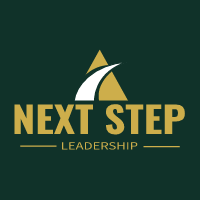Trust the Process (even when it's hard)
In three separate conversations this week, people commented on the insightful nature of questions I’d asked them.
Two of those moments were in coaching sessions. So, fair enough, that’s part of my craft. But the third? Completely outside a coaching context. It reminded me of my very first formal coach training, when the facilitator said something that felt simple at the time, but has stayed with me ever since: “Trust the process.”
Starting out is humbling
When I started coaching, I constantly second-guessed myself. How could I help someone who was more experienced or more knowledgeable than me?
It took me a while to realise: coaching isn’t about having the answers. In fact, it often works best when you don’t have the answers. Instead, it’s about creating the space for them to find their own answers and then having the courage to hold that space without rushing to fill it. Or, put another way: trusting the process enough to step back and let them get there… in their own time.
And that’s harder than it sounds. Especially if, like me, your instinct is to serve by fixing things (service is my strongest love language).
Coaching that seeps into life
Reflecting on that third conversation, I realised my coaching practice is more regularly spilling into other parts of my life: conversations with friends, colleagues, even strangers. Instead of jumping in with solutions, I’m asking better questions. Instead of carrying the weight of someone else’s challenge, I’m helping them build the strength to carry it themselves.
It’s subtle but powerful. And it works… most of the time.
But if there’s one arena where “trust the process” gets tested to breaking point, it’s parenting.
We’re responsible for raising children with good character, values and the skills to contribute to society. But take that responsibility too far and you start holding yourself accountable for outcomes you can’t actually control. Our job is to plant the seeds, nurture the soil and model the values we hope they’ll carry. The rest? That’s their path to walk. I'm re-reading this paragraph just to remind myself!
The courage to hold the line
This week also reminded me that “trusting the process” isn’t about passively sitting back. It’s about holding the line when the easier path is to give in. I’ve been reflecting on the lack of courage some so-called leaders display. "Leaders" who are enslaved to the demands of lobbyists or foreign powers, afraid to speak what they know is right because it might cost them politically. When you live that way, you’re not trusting the process. You’re simply outsourcing your compass.
Something that's really dawned on me though, is that it's easier to trust the process when the work you’re doing fills your heart, when it's aligned to our ultimate purpose. When you care about the outcome, when it aligns with your values, you can weather the uncertainty. You can sit in the discomfort of not knowing exactly how things will turn out because you know why you’re there in the first place.
Trust is not passive
In my faith we have two terms which are very pertinent here: sabr and tawakkul. They're often interpreted as patiently persevering and reliance (on God), respectively. The challenge we often face, or more accurately, bring about ourselves, is that we believe these to be passive. But, just like trusting the process, it takes active, deliberate courage.
It means listening more than speaking.
It’s asking questions that make people pause and reflect.
It’s refusing to remain silent, even when it seems you're the only voice of reason.
It’s knowing when to act… and when to step back.
Final reflection
Whether you’re leading a team, raising a child, coaching a client or just navigating the messiness of life, ask yourself:
Am I making space for others to rise, even if it means I’m not in control?
Am I doing enough work that fills my heart?
Do I have someone in my life who is asking me questions that make me pause, reflect and grow?
Because when you can answer yes to those questions trusting the process stops feeling like a risk.
It starts feeling like the only way forward.
